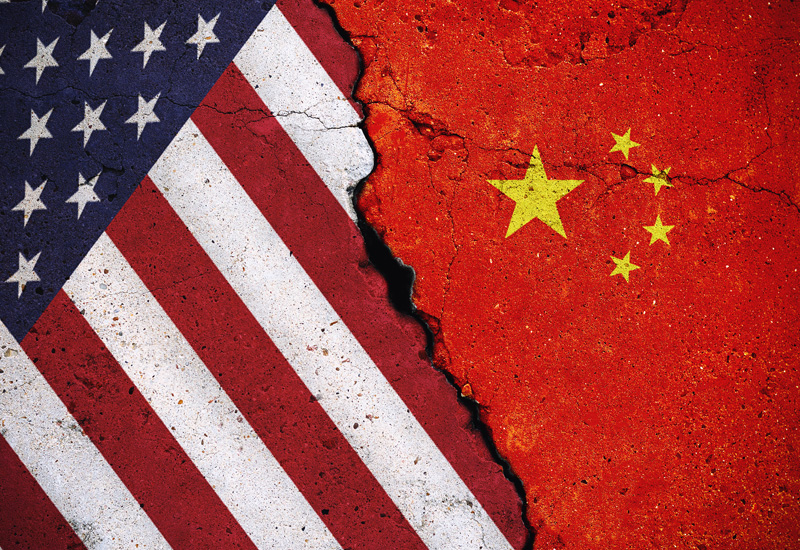
During Donald Trump’s first term, China’s response to the tariff wars against China’s unfair trade practices hit ag producers hard—especially soybean growers. While farm country generally welcomed Trump’s America-first policies, growers remain concerned about his tariffs and China’s retaliation.
During the 2000s, China became the largest market for United States soybeans, pork and other ag products. Soybean farmer took the biggest hit during Trump’s first term, as China calculated it was a vulnerable target for Trump and his voting base. It took billions in Commodity Credit Corporation payments to compensate producers for their losses.
As we know, China never fully lived up to its agricultural commitments in the U.S.-China Phase One agreements. President Joe Biden continued many of Trump’s China tariffs. While under the Phase One deal, China temporarily boosted exports of U.S. soybeans, pork and other products, and may do so again, many Chinese tariff barriers against American ag imports remain in place today, to be waived or not at the whim of the Chinese Communist Party. Despite concern over tariffs, in the latest election cycle, farm country supported self-described “tariff man” Donald Trump for president again.
American agriculture remains the world’s most productive and efficient, amply justifying the American producer’s boast that “we feed the world.” American farmers are historically free traders by conviction. They have lobbied long and hard for other countries to open up their protected ag markets to American ag imports, knowing that we can compete and win against anyone in the global marketplace.
According to U.S.’s China trade representative, Katherine Tai, what we have today is not genuine free trade, however. In February 2023, Tai reported, “China remains the biggest challenge to the international trading system established by the World Trade Organization. It has been 22 years since China acceded to the WTO, and China still embraces a state-directed, non-market approach to the economy and trade, which runs counter to the norms and principles embodied by the WTO. Even more problematic, China’s approach targets industries for global market domination by Chinese companies using an array of constantly evolving non-market policies and practices.”
After 22 years, free-trading democracies have learned that it’s not enough to appeal to the rules of the game when a bad-faith actor is breaking them. Consequences must follow. That is the calculus behind not only Trump’s tariff threats, but also the policies that many other nations, too, are using to protect their markets from China’s trade aggression.
Because of its size, China will always remain an important ag market. That is one reason why it thinks it can get away with its rule-breaking. By 2021, the Chinese were consuming a quarter to a third of the world’s meat—and Chinese meat consumption in 2021 was still just half that of Americans. Despite its own high tariffs on American ag products, it still turns to the American market when it has no choice—as it showed when it recently bought eight shiploads of American soybeans even after Trump’s election and tariff tweets.
China has consistently sought to diversify ag suppliers to hedge its bets and ensure food security. At the same time, the U.S. and other advanced economies are exploring ways to decouple certain supply chains from China. More is at stake than trade or agriculture alone. National security considerations are also (belatedly) driving a push to protect American supply chains from Chinese dominance in the manufacture of drones, high-end computer chips and other high-tech components vital to national security.
Is this the end of globalization that some pundits have touted? Not completely. Economies are too intertwined globally to allow total decoupling. A recent Washington Post article tracked the dizzying journey of a single batch of high-end computer chips as they zoomed across the globe in various stages of their complex manufacturing process.
But voters around the world do agree that supra-national organizations, from the European Union to the World Trade Organization to the United Nations, have massively failed ordinary citizens. In Europe, Scandinavia, Argentina, the U.S. and elsewhere, voters are re-asserting the supremacy of the sovereign nation-state and democratically accountable governments over the globalism of unaccountable elites and NGOs operating out of view.
In trade relations, there may be a general return to a more dynamic, flexible bilateralism in which individual countries negotiate trade with each other directly on a year-to-year basis, with strict monitoring, as they did in the past, instead of the regional trade pacts like the U.S.-Mexico-Canada Agreement that replaced the North American Free Trade Agreement in 2018. The tariff powers that the U.S. Congress delegated to the president under several laws give him the ability to respond rapidly to perceived trade threats.
Whatever happens, the rest of the world, including China, will continue to need America’s high-quality agricultural surpluses. Commodity groups are doing their part, cultivating “base hit” markets around the world to replace China’s “home run” market, seeking diversity in markets just as China seeks diversity in supply.
The free, diverse, energy-independent and currently world-leading American economy may be better equipped to handle tariff pain than either its state-controlled geopolitical rivals or its allies and trading partners.
Let’s not kid ourselves, however. That pain will not be distributed equally. Renewed tariff wars will undoubtedly hurt some sectors of the economy. America’s already-suffering ag producers will be targeted again, making it essential that strong federal support continues.
David Murray can be reached at [email protected].
PHOTO: Concrete slab with large cracks, flags of the USA and China. (Adobe Stock │ #328134219 – Iurii Gagarin)




